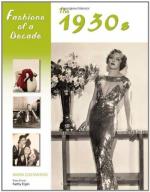|
This section contains 169 words (approx. 1 page at 300 words per page) |

|
Not all businessmen were opposed to labor organizing. Ultimately, the vanguard of a new economic philosophy came from the ranks of those businesses that would lead the economy toward consumer production. Many businessmen in mass-consumptionoriented industries (such as retailers like Filenes and Macy's), urban real estate developers, new consumer banks and investment houses (such as Lehman Brothers, the Bank of America, and Goldman, Sachs), and the motion picture, insurance, furniture, and appliance industries supported high wages as a means to increase demand. They often gave political support to the New Deal and sometimes cooperated with the new Congress of Industrial Organizations (CIO). By 1937 a new coalition of New Deal politicians, CIO organizers, and consumer industrialists were developing a new economic philosophy, one based on government regulation of finance and securities, countercyclical deficit spending, progressive taxation, free international trade, labor organization, and high wages. It would become...
|
This section contains 169 words (approx. 1 page at 300 words per page) |

|




